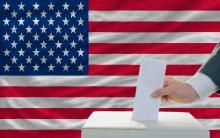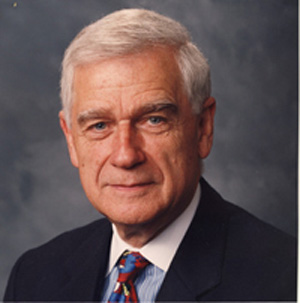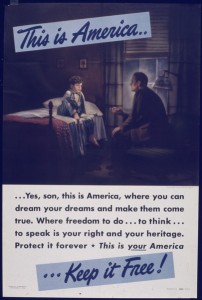Common good

In a previous post about the recent ‘Millennial Values Survey,’ I pointed out that young millennials age 18-24 are becoming disillusioned with institutionalized religion.
It’s an anecdotal truth we’ve been throwing around quite a lot lately, but the survey proves the very clear reality that the newest generation of adults is checking the “unaffiliated” box at a rate of one in four.
But young adults aren’t just showing apathy for religion—it’s politics as well.

Searching For The Common Good In Political Discourse; Afghans Fear Downturn As Foreigners Withdraw; Romney: "I'm Not Concerned About The Very Poor"; Reducing Poverty Will Help Bring About The Kingdom Of God, Bishop Says; Introducing The Ifactory; Get Off Our Butts! (OPINION); Saudi Oil Minister Calls Global Warming “Humanity’s Most Pressing Concern”; Linebacker’s Faith Pulls Him Through Tough Spot; National Prayer Breakfast Gets A Rival: The People's Prayer Breakfast.
Nearly 50 million Americans are currently living below the poverty line (that is $22,000 for a household of four) and half of them are working full time jobs.
In our current economic system, the "happiness" of the super-elite is secured while the lives, liberty, and access to basic needs of the rest suffer. This isn't the American Dream and it isn't God's dream either.
Sojourners has always tried to understand and advocate for "biblical politics." But what does that mean now, especially as we approach another major election?
I was talking the other day to a Christian leader who has given his life to working with the poor. His approach is very grassroots -- he lives in a poor, virtually all-minority community and provides basic services for low-income people. He said, "If you work with and for the poor, you inevitably run into injustice." In other words, poverty isn't caused by accident. There are unjust systems and structures that create and perpetuate poverty and human suffering. And service alone is never enough; working to change both the attitudes and institutional arrangements that cause poverty is required.
As of yesterday, more than 1,009 Americans have been arrested to bring national attention to the controversial Keystone XL pipeline. This is what church looks like. Liturgy means "the work of the people" in service of the common good.
If President Obama permits the Keystone pipeline, thousands more will sit on his doorstep and in front of bulldozers. This movement doesn't have money to match the influence of oil companies, lobbyists, or politicians with conflicts of interest, but we do have our bodies and we are putting them on the line.
Here are what people of faith -- Jews, Christians, Buddhists, Quakers, Unitarians, and more -- are saying about why they have been or will be arrested to stop the Keystone XL pipeline:
Won't it reduce our dependence on Middle Eastern oil? Won't somebody else develop the Alberta tar sands if the U.S. doesn't do it -- someone like China, perhaps?
I've been wrestling with many of these issues as I contemplate risking arrest as part of two weeks of sustained protest by leading environmentalists, climate scientists, and faith-based groups at the White House forth to pressure the Obama Administration to block the Keystone XL Pipeline. This pipeline project will connect Canadian tar sands -- containing the second largest and dirtiest oil reserves on the planet -- with the oil refineries in Texas.
 Mark O. Hatfield's political witness shaped a whole generation of students, teachers, pastors, and social activists in the evangelical community and beyond. The voice of Christians today who plead for social justice and peaceful alternatives to war would not have emerged with its strength and clarity in the 1970s without his leadership. His death underscores the vacuum of such spiritually rooted voices uncompromising in their commitments to peace and justice within the cacophony political rhetoric today.
Mark O. Hatfield's political witness shaped a whole generation of students, teachers, pastors, and social activists in the evangelical community and beyond. The voice of Christians today who plead for social justice and peaceful alternatives to war would not have emerged with its strength and clarity in the 1970s without his leadership. His death underscores the vacuum of such spiritually rooted voices uncompromising in their commitments to peace and justice within the cacophony political rhetoric today.
One of my life's greatest privileges and joys was to work as an assistant to Senator Mark O. Hatfield for nearly a decade, from 1968 to 1977. I saw first-hand what courageous leadership, combined with unswerving compassion and civility, looked like within the political life of that turbulent and formative era. Those experiences are shared in my book, Unexpected Destinations (Eerdmans).
In Galatians 5:19-20, Paul lists the "works of the flesh," contrasting them to the "fruit of the Spirit" immediately thereafter (Gal. 5:22-23). Among the works of the flesh are hostility, quarreling, jealousy, outbursts of anger, selfish ambition, dissension, and division. Another translation puts it, "People become enemies and they fight; they become jealous, angry, and ambitious. They separate into parties and groups ... I warn you now as I have before: those who do these things will not possess the kingdom of God."
The debate we have just witnessed has shown Washington, D.C. not just to be broken, but corrupt. The American people are disgusted watching politicians play political chicken with the nation's economy and future. In such a bitter and unprincipled atmosphere, whoever has the political clout to enforce their self-interest and retain their privileges wins the battles. But there are two casualties in such political warfare: the common good and the most vulnerable.
So how will vulnerable people fair under this deal? "The Circle of Protection," a diverse nonpartisan movement of Christian leaders, has been deeply engaged in the budget debate to uphold the principle that low-income people should be protected. But it is hard to evaluate a deal that averts a crisis when the crisis wasn't necessary in the first place. Over the past few weeks, our economy has indeed been held hostage as politicians negotiated the price of the release. Ultimately, I think most of us wish that no hostages had been taken in the first place, and this was no way to run a government or make important budget decisions.
Where has all the sanity gone?
I, for one, never expected in my wildest dreams to pine for the days of Ronald Reagan. But I'm there.
And for everyone who is blaming "everyone" on this debt ceiling debacle, you're just dead wrong. The Democratically controlled House and Senate in the 80s did not hold President Reagan hostage when he had to raise the debt ceiling. And that is exactly what is happening. And the problem is that this is a train wreck that has been months in the coming. The only thing that we don't know is how bad the carnage will be.
I got accused of everything from turning my back on Christ to taking God out of the classroom!

As Christians concerned about poverty, it is time to turn our full attention to the injustices of an "offshore tax system" that enables corporations and the wealthy to dodge taxes and impoverish countries around the world.
As members of Congress in the United States debate deep and painful budget cuts, people of faith should raise our voices against an unfair system that enables profitable U.S. corporations to dodge taxes, depleting an estimated $100 billion from the U.S. Treasury each year. Instead of cutting $1 trillion over the next decade from programs that assist the poor and ensure greater opportunity, we should eliminate these destructive tax gimmicks.
Recent reports show that aggressive tax dodgers such as General Electric, Boeing, and Pfizer, avoid billions in taxes a year. They use accounting gymnastics to pretend they are making profits in offshore subsidiaries incorporated in low- or no-tax countries like the Cayman Islands, thereby reducing their tax obligations in the United States. This system is unfair to domestic businesses that have to compete on an un-level playing field.
In one of the most-viewed articles on FoxNews.com several weeks ago, writer Onkar Ghate presents a choice of competing moralities between Ayn Rand and Jesus. While his exegetical powers leave much to be desired, he is correct in noting that the choice many Americans will have to make, as far as political philosophies go, is between Ayn Rand and Jesus.
Our country is in the midst of a clash between two competing moral visions. It is not, as we have known in recent history, a traditional fight between Republicans and Democrats. It is a conflict between those who believe in the common good and those who believe individual good is the only good.
On Easter weekend, I will break my fast. I will have spent almost four weeks drinking only liquids. But, as is often true of fasts, what has been gained is far greater than anything given up.
In the face of state and federal budget cuts, many of us have been fasting and contemplating the question: "What would Jesus cut?" In light of tax day, however, we might equally contemplate: "What would Jesus tax?"
After all, a great deal of our budgetary stress is the result of declining revenue, thanks to the economic downturn and decades of tax cuts.
A new report that I co-authored, "Unnecessary Austerity," argues that before we make draconian budget cuts at the federal and state level, we should reverse huge tax cuts for the wealthy and tax dodging corporations.
The Jesus I know would be concerned about the extreme inequalities of wealth and power that have emerged in our communities. He would rail against principalities and powers that rig the tax rules so the privileged pay less.
He would lament the destruction of God's creation through excessive consumption and pollution. And, he would be alarmed about financial and commodity speculation driving up the cost of food and worsening hunger. (In today's world of high finance, someone would be hedging investments on how quickly Jesus could multiply loaves and fishes.)
